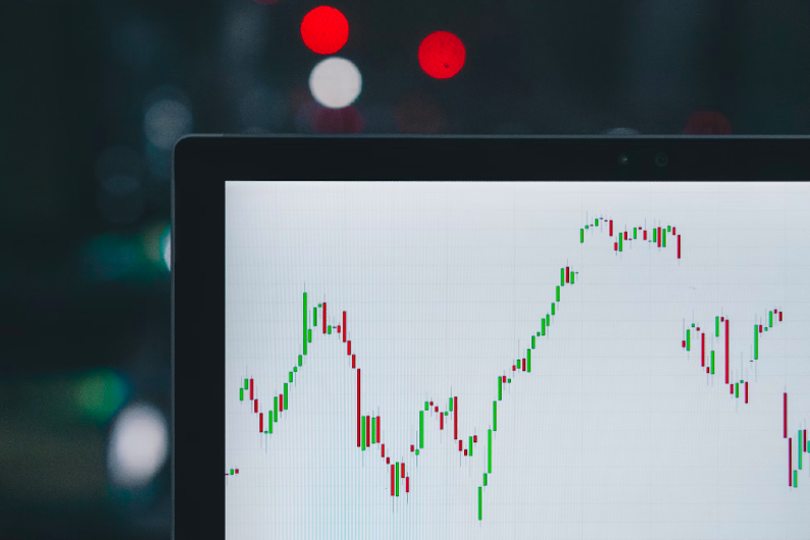
CFDs and options are two well-known trading instruments that frequently take centre stage in the world of financial trading when it comes to impressive returns. You might be comparing CFDs vs Options and wondering which one is better for you and your financial objectives given that both are dynamic financial products that give you the opportunity to profit from market fluctuations.
We will delve into these trading instruments’ characteristics, benefits, and considerations in greater detail in this article to give you more information so you can make more knowledgeable financial decisions. So read on and find out more.
Also consider: Discover my guide to CFD trading for beginners
Key takeaways
- CFDs and options are both trading instruments that allow investors to profit from market fluctuations.
- CFDs offer flexibility, leverage, and the ability to trade on margins, while options provide risk control, predefined losses, and the ability to profit in various market conditions.
- Options provide risk management, advanced trading strategies, and the ability to generate additional income, but require consideration of factors like market conditions, asset prices, volatility, and time decay.
- CFDs involve higher risk, with potential for significant losses, while options have a limited and known risk.
Plus500
- Trade CFDs for both call and put options
- You can make your trades using leverage
- no commissions, spreads and other fees apply to pay on trades and spreads are highly competitive
CFDs are complex instruments and come with a high risk of losing money rapidly due to leverage. 80% of retail investor accounts lose money when trading CFDs with this provider. You should consider whether you understand how CFDs work and whether you can afford to take the high risk of losing your money.
What Are CFDs and How Do They Work?
CFDs, aka contracts for difference, are a popular form of derivative trading that lets you speculate on the price movements of various financial assets without actually owning the underlying assets themselves. This versatility, whereby you can profit* even in rising or falling markets, is one of the key strengths of a CFD. Coupled with its flexibility, it’s easy to understand why this lucrative investment method has proven so popular of late.
*CFDs carry many risks and the market is highly volatile. While returns are possible, they’re proportionate to the risk of loss and both should be presented in equal measure.
A contract for difference does exactly what the name implies. Specifically, it’s a contract agreement that you will enter into with your CFD broker. Under this contract, you and your broker agree to exchange the difference in the price of an underlying asset from the time the contract is opened to when it’s closed. You are speculating on the price movement of underlying assets such as stocks, indices, commodities, currencies, and cryptocurrencies.
The mechanics of CFD trading are relatively straightforward. Let’s say you believe that the price of a particular stock will increase. Instead of buying the stock, you enter into a CFD contract, predicting whether the price will rise or fall. If your prediction is correct and the stock moves as you predicted, you make a profit*.
*CFDs carry many risks and the market is highly volatile. While returns are possible, they’re proportionate to the risk of loss and both should be presented in equal measure.
Another great advantage of using CFDs is that they let you trade on margins. Using margin trading, you can open a position with only a fraction of the total trade value, known as the margin requirement. It allows traders to amplify their exposure to potential gains* using leverage.
*CFDs carry many risks and the market is highly volatile. While returns are possible, they’re proportionate to the risk of loss and both should be presented in equal measure.
Why Trade CFDs?
CFDs are a smart choice for savvy investors who are prepared for their fast-paced nature and know that they can be a thrilling financial ride. Why trade CFDs, you ask? Well, let me tell you why.
What Are Options and How Do They Work?
An option is a financial derivative that gives investors the right, but not the obligation, to buy or sell an underlying asset at a predetermined price and within a specific time frame. These underlying assets can be stocks, bonds, commodities, or other financial instruments.
You will find options usually traded on exchanges, where they are a popular option with traders looking for flexibility and potential for profit regardless of market conditions.
There are two types of options: call options and put options.
Call Options
A call option gives the holder the right to buy the underlying asset at a predetermined price (known as the strike price) before or on a set expiration date. With a call option, you are expecting the price of the underlying asset to rise in the future.
When this happens, you can exercise your call option and buy the asset at the lower strike price, potentially making a profit. If the price doesn’t rise above the strike price before the expiration date, the call option may expire worthless. In this scenario, though you will make a loss, it is limited to the premium you paid for the option.
Put Options
A put option gives the holder the right to sell the underlying asset at a predetermined price before or on a set expiration date. In this scenario, you are expecting the price of the underlying asset to fall.
If the price falls below the strike price, you can exercise the option and sell the underlying asset at the higher strike price. Conversely, should the price fail to drop below the strike price before the expiration date, the put option may expire worthless, but once again, your loss is limited to the premium paid.
Summary
Options are an agreement between two parties: the buyer and the seller (also referred to as the buyer and the writer).
Under this agreement, the buyer pays a premium to the seller, who then assumes the obligation to sell or buy the underlying asset if the option is exercised. Should the option expire unexercised by the buyer, then the seller will receive the premium and profits.
Options are a popular tool for investors looking to speculate on or hedge against the markets. As well as simply generating additional income.
In order to successfully invest in options, you will need to take into consideration a number of different factors, such as current market conditions, asset prices, volatility, and time decay.
Why Trade Options?
Now that I have explained how options work, you may be wondering, why trade options? And what are the benefits of options versus other investment methods?
In my opinion, options are a good choice for you if you are looking to control your risk exposure and limit potential losses. This is thanks to the fixed nature of the agreement, which lets you calculate the worst-case scenario, i.e., losses, in advance.
Options can allow you to earn a stock-like return without investing a large volume of money and are great at ensuring that your risk exposure is predefined and stays within certain bounds. This ability to hedge against potential losses in a portfolio provides a level of protection in volatile markets that is not offered by many other investment options.
Options contracts also provide a unique level of flexibility and versatility thanks to the fact that, as long as you predict the option’s price movement correctly, you will profit from both upward and downward market movements.
The ability to turn a profit regardless of the underlying market conditions makes option trading popular with a number of traders. Experienced traders often use options as part of their advanced trading strategies, as it lets them mitigate risks and create a balanced approach to their overall investment portfolio. Should the worst happen and the closing price of the asset move contrary to your prediction, you can rest easy knowing what your potential losses are in advance.
CFDs vs Options: Key Differences
CFDs and options are both popular trading instruments in financial markets, as they both let you profit from the price movement of an underlying asset’s price, but they have key differences that I will now highlight for you.
A CFD is a contract between a trader and a broker where they agree to exchange the difference in the price of an underlying asset from the time the contract is opened to when it is closed.
Meanwhile, an options agreement provides you with the right, but not the obligation, to buy or sell an asset at a predetermined price within a specified timeframe.
Another major difference between the two is the risk factor.
With a CFD, you run the risk of incurring high losses. If the price moves contrary to your prediction, then thanks to the fact that your position is leveraged, you can run up significant losses on one bad turn. For this reason, I always advise you to set up a stop-loss order when CFD trading. Options trading, in contrast, is safer, and the risk of losing money rapidly is unlikely as the risk element is limited and known in advance, as the maximum loss you can incur is the premium paid for the option.
Overall, options trading and CFD trading offer distinct advantages and risks, and traders should consider their trading goals, risk tolerance, and market conditions before choosing between the two.
Advantages of trading CFDs over Options
While options contracts are an asset in any diversified portfolio, and I do recommend options trading, I do believe that CFD trading has some advantages when compared to options trading.
In my opinion, the main advantage of CFDs over options is their low cost. Put simply, as CFDs are a simpler product, there is less markup, and the fees to the CFD provider will be lower when compared to those of an options provider.
Also, CFDs offer far greater flexibility, and the fact that with a CFD you can enter positions of any size should not be overlooked. With options, the predefined contract restricts your return on investment if you predict how the market moves correctly.
Lastly, CFDs provide access to a wider range of markets, including stocks, indices, commodities, and cryptocurrencies, allowing for greater diversification.
CFDs vs Options FAQs
Are CFDs safer than options?
Are CFDs the same as options trading
Please note
CFDs and options carry risk and are complex instruments that may not be suitable for all investors. This article is for informational purposes only and does not constitute financial advice. All contents are based on my understanding of HMRC legislation, which is subject to change. The value of your investments (and any income from them) can go down as well as up and you may not get back the full amount you invested. Past performance is not a reliable indicator of future performance. Investments should be considered over the longer term and should fit in with your overall attitude to risk and financial circumstances.

